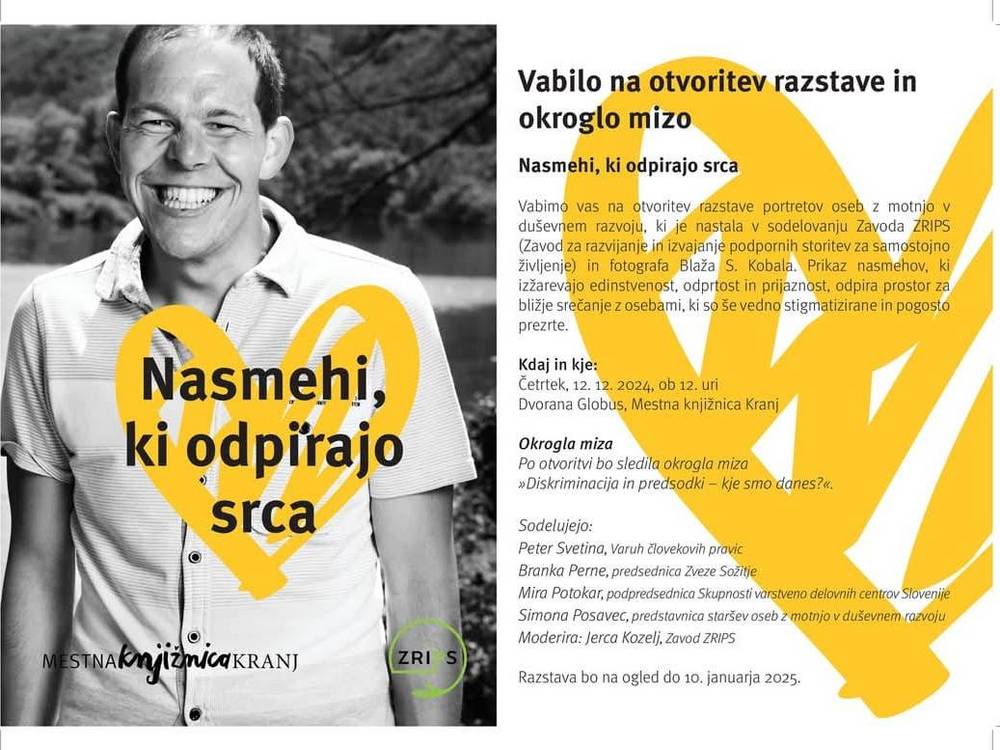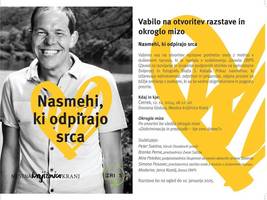"Discrimination of different groups still happens everywhere, every day, and at every step. The only way to curb it is to learn about it and actively prevent it. It is the responsibility of the authorities to create conditions in which the possibility of prejudice growing into active discrimination is reduced," Human Rights Ombudsman Peter Svetina said at the roundtable entitled Discrimination and Prejudice – Where Are We Today? in Kranj.
He emphasised that discrimination begins with prejudices about a certain community, with imaginary ideas about what someone who is different in our opinion brings to our lives. "For some time, and especially in recent years, we have noticed an increase in individualisation and a decrease in cooperation. We perceive fellow human beings as a threat, we do not accept differences. This fear is a 'great' starting point for all sorts of ideas about how the elderly are less able to work or learn, that foreigners are stealing our jobs, that the unemployed are lazy, and that it is a given that mothers of children with disabilities must care for their offspring without socially valued status and compensation for one's effort," the Ombudsman touched on the problem of discrimination.
He also pointed out that during his mandate he has met with many civil society organisations that were opposed to one group or another in their environment. "Not only do they oppose people with intellectual disabilities, they even oppose a home for the elderly or a kindergarten in their midst!" he was critical of people's behaviour.
In particular, he presented his observations on the discrimination of persons with disabilities, a group that he has paid particular attention to during his mandate, as it is one of the most vulnerable. He notes that due to frequent medical examinations and treatments that require absence from work, parents of sick children or those with disabilities find it more difficult to find employment or cannot find it at all, as some employers do not understand their plight. "Persons with disabilities are also often exposed to discrimination because the environment is not properly adapted. If the building of a ministry is not adapted, a person with a disability is prevented not only from accessing it, but also from applying for a certain position or function in that ministry. If he doesn't have an adapted bus, he can't even get to his workplace, if he manages to get one. "Employers often refuse to employ disabled people, even though they are qualified to work," he emphasised.
"Next year, sees the expiry of the deadline for adapting facilities so that they are accessible to all persons with disabilities as well as other people, such as patients or the elderly. Fourteen years was not enough time for concrete results, it is not believed that the government, ministries, centres for social work, courts, and other institutions will be able to complete the legally prescribed tasks in one year. So, it may happen that those who are the first example that laws should be respected will break another additional law," the Ombudsman was critical.
These forms of discrimination are a violation of the United Nations Convention on the Rights of Persons with Disabilities, which Slovenia has ratified, which is inadmissible, he emphasised, issuing a reminder that discrimination in Slovenia is also prohibited by the Constitution, the Act on Protection against Discrimination, and international agreements.
He stressed that the Ombudsman suggests that decision-makers to improve the accessibility of the infrastructure, and encourages them to have active employment policies for persons with disabilities and to strengthen inclusive education with appropriate adjustments. He calls for systemic solutions and measures to eliminate inequality.
The Ombudsman notes that patients with mental disorders are still often socially excluded or stigmatised as 'dangerous' or 'incompetent'. Discriminated persons also often find themselves in social hardship and poverty, and they also suffer interference with the foundations of human rights – their dignity. "Changes in our thinking happen slowly, and as soon as it seems that a shift has been made, we slip back again. Therefore, the effort to ban discrimination is a never-ending task, and it is necessary to focus on the values on which the European Union is based, such as acceptance, solidarity and inclusion," he emphasised.
"It is not enough that we are only declaratively against discrimination. We must actively fight against it. We must create an environment in which it does not occur. We must always pay attention to the signs that show that it could be present and, as we do with a weed, to nip in the bud. We must warn against ideas that promote discrimination on the basis of personal circumstances. Because when these occur, the dignity of a person is already damaged and their rights to their humanity are thereby encroached upon," Human Rights Ombudsman Peter Svetina stressed.
* * *
The roundtable rounded off the opening of the exhibition, which was prepared by ZRIPS (Institute for the Development and Implementation of Support Services for Independent Living) in collaboration with photographer Blaž S. Kobal. The series of portraits of people with intellectual disabilities communicates that a person is beautiful and valuable regardless of their external appearance or mental abilities. Its purpose is to destigmatise disabilities and bring people with intellectual disabilities closer to the general public, as they are still often overlooked.
In addition to the Ombudsman, Branka Perne, president of Zveze Sožitje (the Association for Coexistence) Mira Potokar, vice-president of the Community of Work and Care Centres of Slovenia, and Simona Posavec, representative of parents of persons with intellectual disabilities, participated in the roundtable. The conversation was moderated by Jerca Kozelj, professional manager of the ZRIPS.

